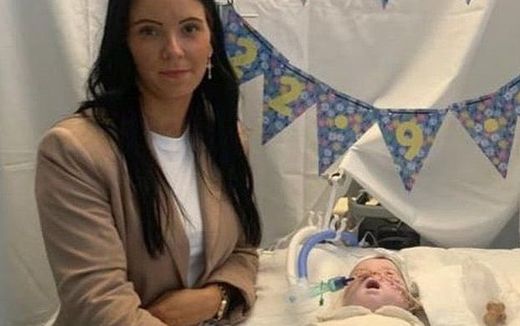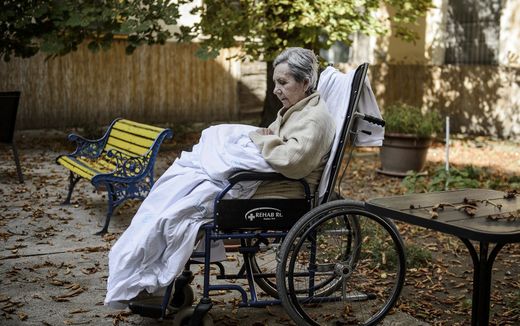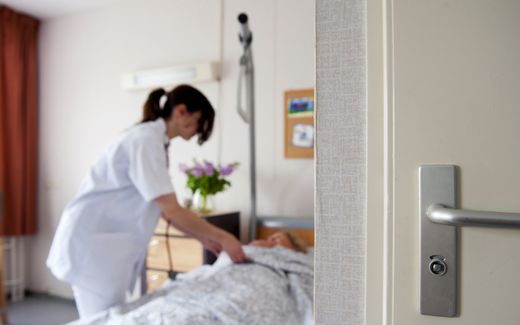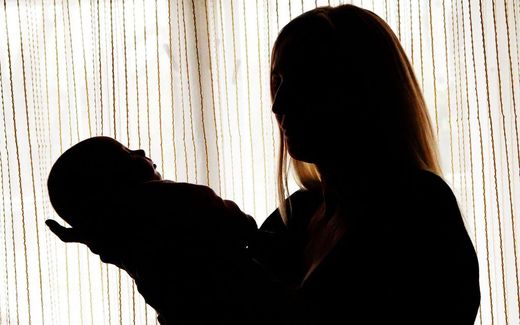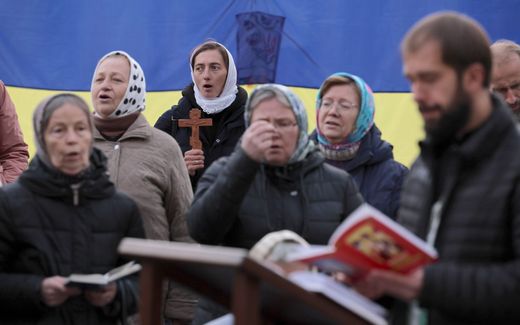How Indi Gregory made global headlines
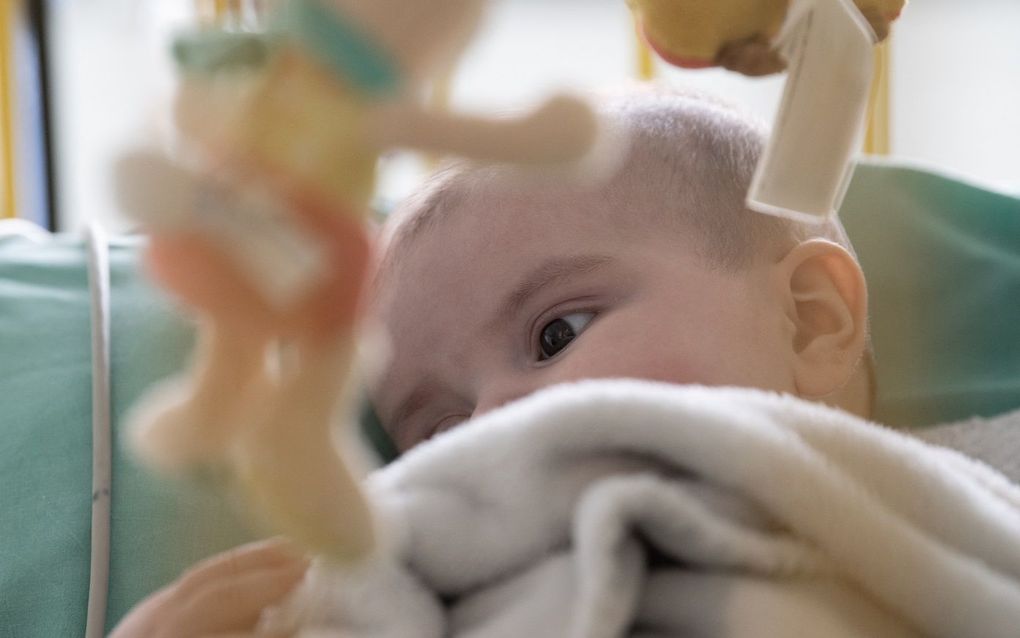
After Charlie Gard (2017), Alfie Evans (2018) and Archie Battersbee (2022), Indi Gregory received worldwide media attention this year. Image to illustrate. image AFP, Alain Jocard
European Union
Baby Indi Gregory is by no means the first British patient to make headlines in a fight over ending treatments. However, all these cases have one thing in common.
The British government is attempting to kill the child while the Italian government and the Vatican are offering Indi Gregory citizenship and treatments. This is how the Catholic talk show host Michael Knowles summarises the case of Indi Gregory. The popular US commentator is not the only one who looks at the situation this way. Christian and conservative media worldwide drew attention to the case in this manner.
The seven-month-old Indi Gregory hit the headlines in September when a hospital in Nottingham applied to the British High Court to stop treatments. Indi suffered from a rare mitochondrial disease, which caused her energy metabolism not to work correctly. Her body cells did not make enough energy, which prevented her muscle tissue from developing properly.
The doctors say there is nothing more they can do for Indi, but her parents want to continue treatment. They turn to the media to seek legal help. “We cannot afford to hire the lawyers we need to match the legal firepower of the hospital,” father Dean Gregory tells the BBC. “We don’t have a lawyer, but we would desperately love to have one.“
A week after the parents’ appeal, the British Christian advocacy group Christian Concern published its first article on the case, announcing that it would provide legal assistance to the family. Director Andrea Williams argues that the father defends his child’s life “with the weight of the system stacked against him.” A series of court cases follows, ending at the UK Supreme Court. It does not help the parents: on Monday, 13 November, their child dies.
One of the people who legally assisted Indi’s father during the court cases is Christian lawyer Michael Phillips. “People who find themselves in a situation like the Gregory family get a list of lawyers paid by the state,” he explains. “But those lawyers, in some respects, it is believed by parents, don’t tend to fight as hard for their clients because they get paid a certain amount for legal aid. We work from a different perspective,” Phillips argues. “Indi was never going to reach 80 or 90 years of age, but every day for the parents was going to be precious.”
The judge, however, was unapologetic about the actions of Gregory’s lawyers. In one of the rulings, Lord Justice Peter Jackson expresses his “profound concern” that the many lawsuits –six in 25 days– have diverted attention from the ailing Indi. “The increasing demands and changing positions of the parents have been extremely challenging for the clinicians, who have not only to look after Indi but twelve other critically ill children on the ward.” Advocate Phillips, however, sees no alternative. “If the judge had ruled in our favour, we wouldn’t have to return to court.”
Distress
British newspaper The Guardian, which has previously reported critically on Christian Concern, states that several medics quit their jobs because of “significant moral distress” due to the public pressure Christian Concern put on them. Director Andrea Williams calls these allegations “perverse”. She argues that it is not the parents who are filing lawsuits but the NHS, which wanted to stop treatments.

However, according to Dr Mark Pickering, Indi’s medical battle appeared unwinnable. The Chief Executive of the British Christian Medical Fellowship, an organisation that equips and supports Christian healthcare workers, points to the baby’s clinical situation: “In addition to the untreatable mitochondrial disease, she had severe heart problems and permanent brain damage. I think the doctors made a defensible decision not to continue treatment.”
Indi Gregory is not the first British patient to make global headlines because of a conflict between family and doctors. Children like Archie Battersbee, Charlie Gard and Alfie Evans have been the subject of similar court cases in recent years, pitting doctors and families against each other. However, all these cases have one thing in common: Christian Concern was involved. According to Pickering, this organisation “often takes a black-and-white view on the situations they face. For them, these discussions are often seen as a clear battle between right and wrong, when the details may be much less clear.”
Christian Concern is an umbrella for several organisations, explains lawyer Michael Phillips. He works with Christian Concern through a law firm that regularly handles legal cases for the Christian organisation. “Christian Concern is a fundraising and campaigning organisation. It introduces people to lawyers.”
According to Phillips, there is a feeling in British society that medics are generally right. “The idea then is: the child dies anyway, so why challenge those nice doctors? But medics can make mistakes, which is why the Gregory family was not very trusting at that point.”
Tension
According to Theo Boer, a Dutch professor of health ethics at the Protestant Theological University Groningen, conflict between families and medics is becoming increasingly common. “This tension between patient autonomy and medical professionalism is growing in all Western countries. But a doctor should not be forced to act against his conscience or his professional views.”

According to the ethicist, a patient should assume that a doctor has a patient’s best interests at heart. But a doctor also has responsibilities, Boer argues: “On the one hand, you have your medical professionalism, where you have to consider whether treatment still makes sense. But on the other, you also have a relationship of trust with the family. And that means you have to keep that family on board in your decision-making. That went very wrong here.” Yet, the ethicist does not think this is a reason to distrust medics. “Our society is already distrusting enough,” he says.
Lawyer Phillips, however, sees this differently. “If the doctors are right, then that is fine. Let’s just have a fair trial.” He argues that the doctors had decided beforehand that it was best for Indi to stop treatments. “Unless they were to admit that this finding was mistaken, they would never have let her go to Italy.”
For ethicist Boer, the Meloni government played a harmful role in the case. After Indi became world news, Italy offered the child citizenship and experimental treatment at the Vatican’s children’s hospital, Bambino Gesù. At the child’s funeral, two Italian cabinet members were present. According to Boer, the child thus became part of a populist joust. “Then the Netherlands can also start inviting people from Britain for euthanasia. Countries should respect each other’s national sovereignty.”
Myth
The UK healthcare system has been under scrutiny for some time because of budget problems. The healthcare system is one of the few systems worldwide to offer free care; everything is funded by taxpayers’ money. However, this system is increasingly becoming more difficult to sustain: costs are skyrocketing. Critics, therefore, argue that this is one of the reasons Britain wanted to discontinue care for Indi. According to CMF Chief Executive Mark Pickering, however, that is a myth: “The NHS will continue to look after people as long as there is hope. The interests of the patient are paramount.”
Pickering says he was impressed by how the judges weighed Indi’s interest and the medical prospects. “There remains, of course, the question of why you don’t want a child treated at Italy’s expense, but Italy is a Catholic country. And I think they go on treating longer there, without that necessarily being in the patient’s interest.”
Theo Boer confirms the difference between Roman Catholic and Protestant views on treatment. “Just look at where euthanasia is possible. Those are all originally Protestant countries. Catholics are more strictly pro-life in that.”
Mark Pickering says he broadly agrees with the court rulings. “And I think most Christian doctors who are in such a situation do, too. We live in a society that is running away from God, but these rulings show that Christian values are still largely reflected in our healthcare system. So I don’t feel that we work in a terrible system that tries to kill disabled children.”
Related Articles


